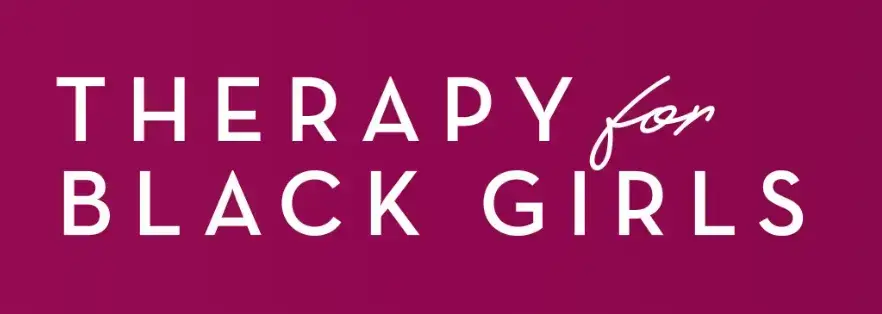Top 5 Meditation Styles to Break the Cycle of Anxiety
Lots of people try breathing exercises, or mindfulness at some point to help ease anxiety, but how do you know which strategies will best calm you down? I’m here to tell you that while you can meditate in any way you see fit, there are so many different types that you may need to try multiple before finding the one best suited to you. Meditation is a practice that involves mental and physical techniques in order to clear the mind. People meditate for endless reasons, but some of the most common ones are to relieve stress and anxiety, or to relax. Remember that there’s no right or wrong way to meditate, but the differences between the various types of meditation are key!
1. Breath Awareness Meditation
Breath awareness meditation is an ‘entry level’ strategy that encourages focus on mindful breathing by counting breaths slowly and deeply. It reduces anxiety and emotions by helping you solely focus on breathing and ignore any other thoughts bouncing around in your mind – no matter how positive or negative.
2. Mantra-Based Meditation
Mantra-based meditation is when you continuously repeat a set of words or phrases silent or out loud to anchor yourself in the present moment and redirect any negative thoughts you may be having. There are many different types of mantras including:
- Loving-kindness: positive thoughts about yourself or others like “May you be happy”
- Affirmations: any affirming phrase such as “I can do this”
- Focused: saying words out loud or in your head which narrate what your body is doing, like saying “up” or “down” with the rise and fall of your chest as you breathe
3. Transcendental Meditation
Transcendental meditation is a technique which encourages a relaxed state of awareness by avoiding distracting thoughts. By focusing on your attention, Transcendental Meditation uses a repeated mantra, much like Mantra-Based Meditation in order to direct your attention. This meditation can be done alone or with the help of a professional.
4. Loving-Kindness Meditation
Loving-kindness meditation (LKM) is about prioritizing loving yourself and the important people in your life. There are many variations of LKM, but the easiest way to practice it is as simple as repeating a positive or supportive phrase in your mind, and then including our friends and family in that thought, and at the end, everyone. LKM is deeply tied to mindfulness because it is all about being in the present moment and adding an extra level of compassion in your life.
5. Body Scan Meditation
Body scan meditation (BSM) involves directing your attention to specific parts of the body from your feet all the way to your head. The goal is to increase awareness of your physical body and emotions. By scanning your body you should be able to more easily pinpoint physical sensations that may be causing you discomfort and learn how you might be able to manage your emotions better and lessen pain.
These strategies are only a few of many different meditation strategies geared towards easing anxiety. It can be frustrating if you do not see immediate results, but remember that you may need to try many different strategies before finding the one that works best for you. Meditation has countless physical and emotional benefits, and if you stick with it, you may experience results you never before dreamed of.
Meditation for the short term & long term
- Calms you down and reduces the effects of anxiety, helps you feel less fatigued, lower your heart rate and blood pressure.
- Can help increase oxygen intake and circulation throughout your body. You are exercising your diaphragm when you breathe, and focused breathing during meditation can allow better nutrient flow and breath control for regular breathing.
- Can help decrease certain feelings of pain and discomfort. Soothing the brain and its habits repeatedly can help people feel pain less intensely.
- Can reduce stress and therefore increase melatonin levels, leading to an easier time falling asleep and staying asleep.
- Improves attention, memory and focus, allowing for higher productivity at work, school or other daily activities.
Meditation for Anxiety in a Nutshell
Meditating may feel silly at first, but its effects are very real, and could help you too! While you are waiting for your first or next session with a professional, meditating may be the perfect way to relieve feelings of stress or anxiety right from your own home. If you’re looking for professional advice, Mind By Design has options that may suit any of your unique needs. You can book a free consultation call today with any of Mind By Design’s mental health professionals to begin your journey today.
Ready to Start Therapy?

Frequently Asked Questions
About Online Therapy at Mind by Design Counseling
Where are you located? I need a therapist near me
We are fully online, which means that your therapy sessions will be help via video call on our HIPAA compliant Platform. Anyone in New Jersey can access our therapy services
How do I get started as a new client?
New Clients can reach out to us directly via call, text or email here:
Does my insurance cover my visits?
We provide”Courtesy Billing” for clients who are using the Out-of-network insurance benefits.
Our Insurance Page shares a small blurb about Why We Left Insurance Panels
What are out-of-network benefits?
When using OON benefits, patients typically pay the full cost of the treatment upfront and then file a claim with their insurance company for reimbursement. The amount of reimbursement can vary depending on the plan, but it can sometimes be as high as 90%. Call your insurance to see if you have OON benefits or click here to call us and we can check for you!
Is Online Therapy As Effective As In-Person Therapy?
Online therapy is essentially face-to-face counseling, just conducted remotely. Studies show that tele-therapy is as effective as traditional counseling. Professional organizations and state governments recognize its benefits and have set regulations for it. However, like any therapy, its success in achieving your goals isn’t guaranteed. It’s important to discuss with your therapist whether tele-therapy is working for you.
How Should I Prepare for My First Session?
Showing up is all that you need to do! But if you really want to get the most out of session, it could help to take some time to think about what you want from therapy. It helps to write down your goals, questions you have or things that you feel are important to share.
Do you offer traditional talk therapy?
of course! though we have some unconventional therapy approaches, we are rooted in evidenced based practices. Talk therapy is a major player in the therapy room! See What we Treat and Integrative Services for more information
Is Virtual Counseling Suitable for Everyone?
Online therapy might not be as effective for individuals with chronic suicidal thoughts, severe trauma, significant mental health history, or those recently in intensive care. Such cases often benefit more from traditional, in-person counseling. We’ll help you decide if our online services are right for you during your intake and evaluation.
Can I Change Therapists If I'm Not Happy?
Yes, you can switch therapists to another provider within the practice, or we can provide you a referral if preferred. We want to ensure that your time and effort are well spent, and that you are getting the relief you need, that’s why we work collaboratively with each other in the practice, as well as outside therapists who we know and trust.
How Do I Know If Therapy Is Helping?
You should feel like you’re making progress. Signs it’s working include:
- Feeling comfortable talking to your therapist
- Your therapist respects boundaries
- You’re moving towards your goals
- You feel listened to
You’re doing better in life - Your self-esteem is getting better
What is your cancellation policy?
We ask that clients provide at least 24 hours notice in the event that they need to cancel to avoid the 50% cancellation fee. we understand that life happens and do our best to be flexible & reschedule.
What Geographic Areas Are Served?
Currently, we serve clients in New Jersey and are expanding to other states as telehealth laws evolve. While telehealth offers the convenience of attending sessions from anywhere, state laws require clients to be in-state during their session.
Is Online Therapy Easy to Use for Non-Tech-Savvy People?
Yes, it’s pretty simple to access sessions. You’ll need basic internet skills, such as opening and visiting the patient link sent to you via email. It’s similar to video chatting like Facetime or Zoom. We can also walk you through it on the phone the first time to ensure a strong connection
What Questions Should I Ask My New Therapist?
Feel free to ask anything. Some good questions are:
- How often will we meet?
- What do you specialize in?
- What experience do you have with my issue?
- What outcomes can I expect?
- How will I know I’m progressing?
- How long do you usually work with clients?
- How will we set my treatment goals?
What is the difference between associate therapists & fully licensed therapists?
Our Qualifications:
Our founder, Rebecca Sidoti, is a highly qualified, state-licensed therapist and supervisor with extensive training in anxiety related disorders and innovative treatment such as Ketamine Therapy. Mind by Design Counseling adheres to standards set by the our governing counseling boards.
To see each providers credentials, training and licenses, visit our “Meet the Therapists” Page to learn more.
- LAC/LSW are therapists who may practice clinical work under the supervision of a fully licensed therapist.
- LPC/LCSW are therapists who have completed the necessary clinical hours post-graduation under supervision and can practice clinical work independently.














